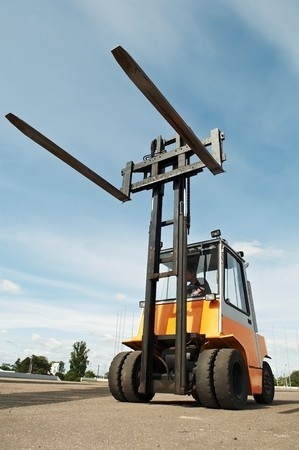Driver Gets Benefits for Injuries Sustained on Work Break
Monday, October 24, 2022 | 0
The Arizona Court of Appeals upheld a determination that a truck driver was entitled to benefits for injuries he sustained while on a break to buy treats for his dogs after making a delivery to a store.
 Gordon McChesney has worked as a truck driver for CRST International for many years. His job involved driving a flatbed truck to the stores, using a forklift to load bales on the truck and then taking the bales to Phoenix for recycling.
Gordon McChesney has worked as a truck driver for CRST International for many years. His job involved driving a flatbed truck to the stores, using a forklift to load bales on the truck and then taking the bales to Phoenix for recycling.
McChesney got off to a late start one day in April 2020 because his truck was being repaired. He typically was on the road by 7 a.m., but he did not depart on his route from Tolleson to Flagstaff until 10:30. He arrived in Flagstaff at about 1:30 p.m. and loaded cardboard bales on his truck at the first of three stores.
He then took a quick break and headed to the store's front entrance to buy biscuits for his two dogs at home. He drove the forklift from the back of the store, along an empty sidewalk on the side of the store, toward the front entrance. Along the way, he ran over a large rock on the sidewalk that jolted the forklift and caused him to hit his head on the protective cage.
The forklift swerved, tilting but not tipping over, causing McChesney to again hit his head on the cage. After stopping, McChesney got out, collapsed and passed out.
A police officer nearby called an ambulance. McChesney was treated at a local emergency room, and then a family member brought him home.
McChesney filed a workers' compensation claim, which was denied. CRST argued that McChesney was outside the course of his employment when he was injured because he was on a personal errand and was prohibited from going into the store or using the forklift for transportation.
An administrative law judge found McChesney's injury was compensable. She said using a forklift to drive to the front of the store was "not out of the ordinary" for CRST employees, and McChesney's use of the forklift to drive to the front of the store to shop while on a break was not "a clear violation of a work rule or so out of the ordinary as to constitute a deviation from his employment."
The Arizona Court of Appeals explained that the conduct of a traveling employee during work is "in the course of" employment unless it is a "substantial deviation."
Based on the record, the court said McChesney did not knowingly violate a company rule by trying to go into the store. While CRST introduced evidence that it had directed drivers to go into stores only to use the restroom or get food or drink because of the COVID-19 pandemic, the court said there was no evidence that McChesney received the text message containing this directive.
Moreover, the court said, even if CRST had notified McChesney of the directive before his injury, that policy did not prevent CRST employees from going into stores to use the restroom or, presumably, to get food or drink, and McChesney testified that he might have gotten something to drink, along with dog treats, in the store.
The court also said there was evidence that CRST employees used forklifts for transportation to the front entrance of large stores. McChesney's use of the forklift was not unreasonable because it would allow him to return to his driving duties more quickly than if he walked, the court added, and there was no evidence that his use of the forklift for that purpose was typically dangerous or, given similar prior usage, violated a company rule that was communicated and enforced.
Finally, although McChesney was performing a personal errand when he was injured, that is not dispositive, the court said. McChesney took a short break and went from one area of the customer's large property where he was working to another area on the same property to buy personal items.
“If there was any deviation from employment by McChesney's attempt to buy dog biscuits, it was slight,” the court said. “On this record, the ALJ properly could conclude that McChesney's conduct was not a ‘substantial deviation’ from customary or reasonable practice such that it was outside ‘the course of his employment.’”
To read the court’s decision in CRST International v. Industrial Commission, No. 1 CA-IC 21-0049, 10/06/2022, published, click here.







Comments